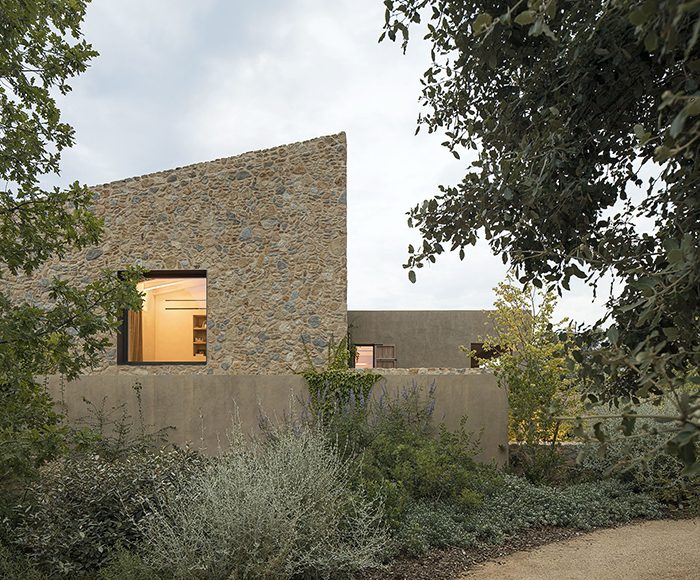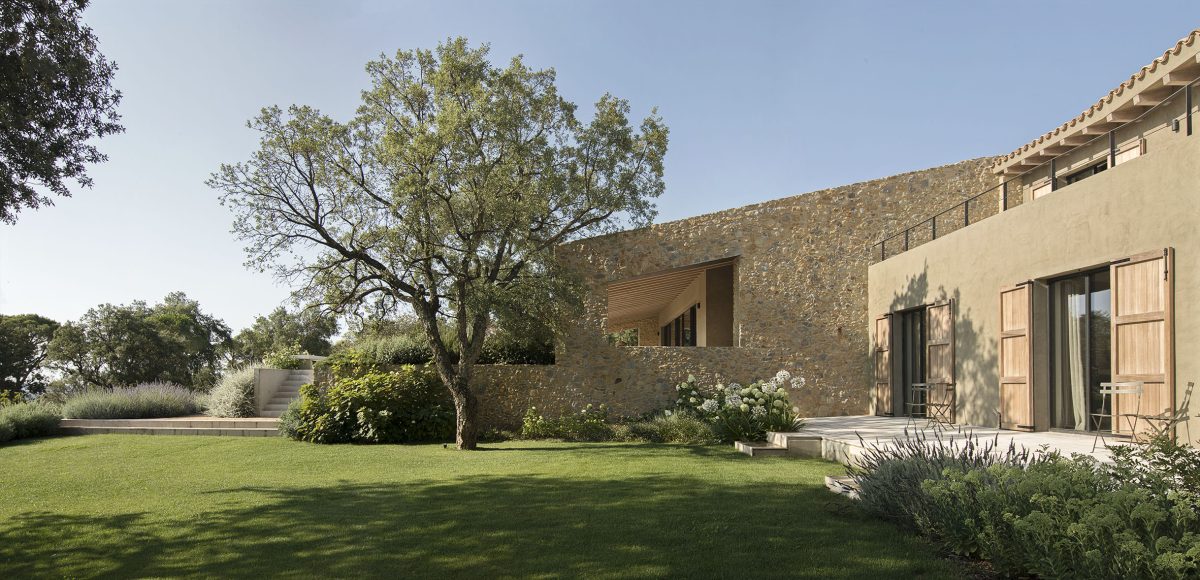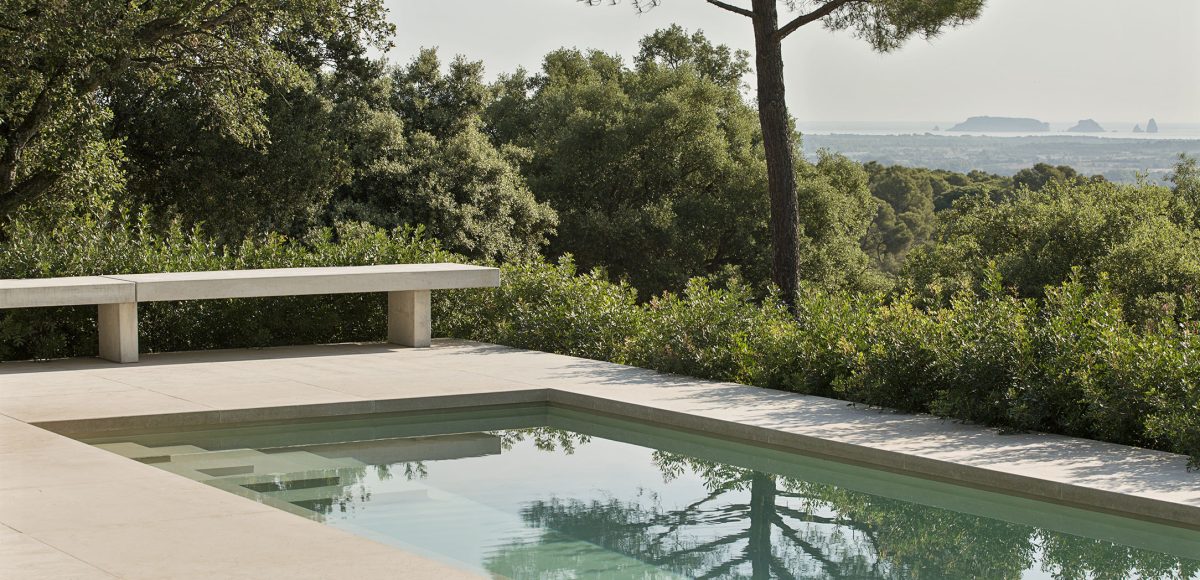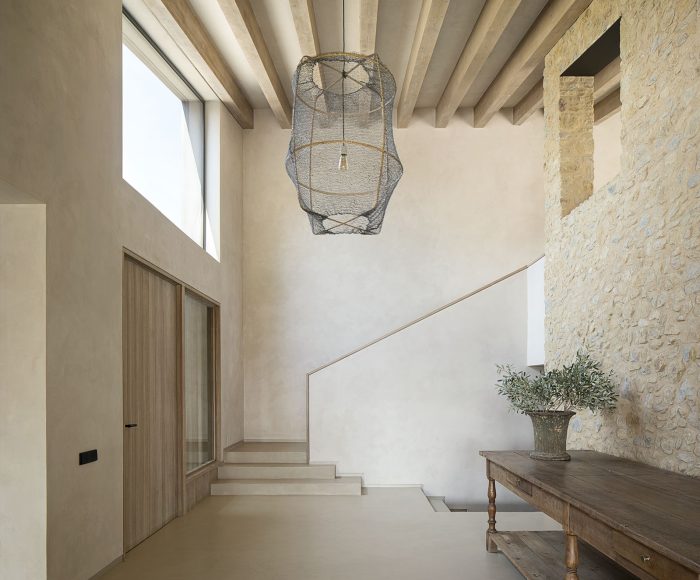





The main challenge of the project was to adapt the building to the terrain in order to minimise its visual and environmental impact. Taking advantage of the sloping topography and sparser tree cover, the house is located in the highest part of the terrain. Being slightly elevated with respect to the plains that surround it, the house has outstanding views and an intimate connection with the outside space, characterised by lush native vegetation, as it is on the edge of the forest of Les Gavarres.
The house consists of two main volumes: one where the living room and day areas are located, on a single level, and another volume of two levels where the bedrooms are located. These two volumes are connected through half levels with the main staircase, so that the transitions in the house always occur in a comfortable and natural way.
The practice of combining the spaces by means of controlled heights gives the house a proportionate scale and an optimal adaptation to the topography.
A large roof of Arabic tiles, sloping, like the terrain itself, covers these volumes, giving the whole a compositional unity of great character.
The large windows in the living room emphasise the dialogue and harmony that have been achieved between the house and the surrounding nature.
The outdoor spaces are structured by terraces that give the area around the house the appearance of an agricultural field.
In order to achieve a harmonious and respectful integration with the environment, natural materials typical of the area, such as natural stone, lime stucco, reclaimed Arabic tiles and wood, were used in the development of the project.
| Start – End Dates | 2017 – 2019 |
| Area | 388m2 |
| Client | Private |
| Photography | Del Rio Bani |
| Structural Engineer | Static Engineering |
| MEP Engineer | PGI Group |
| Consultants | Local 4 |